As China and Hong Kong actively explore establishing a permanent organ transplantation cooperation mechanism, nearly 6,000 Hong Kong citizens canceled organ donations from December 2022 to April 2023, much more than before. In December last year, the Secretary of Health, Lo Chung-mau, expressed his hope to integrate Hong Kong hospitals into the mainland’s “China Organ Transplant Response System (COTRS)” in an interview with the party media Xinhua News Agency. Citizens canceling organ donation registrations stems from a lack of trust and suspicion towards Beijing.
The source of organ transplantation in China has always been controversial, and international calls have been made to boycott CCP’s organ whitewashing. The medical community and patient groups in Hong Kong also express distrust and concern regarding this issue.
In December 2022, following the completion of the first organ transplant from China for a 4-month-old baby girl in Hong Kong on a “special case” basis, the Secretary for Health, Mr. Lo Chung-mau, has been pushing for Hong Kong to be included in the China Organ Transplant Response System (COTRS).
In mid-March, Lo visited the China Organ Transplantation Development Foundation in Beijing to discuss establishing a regular organ transplant collaboration mechanism with China. On May 20, the Chief Executive of the Hospital Authority, Dr. Tony Ko Pat-sing, led a delegation of organ transplantation experts from Hong Kong to Guangdong Province to engage in discussions with mainland experts on organ donation, allocation, transplantation, and related systems and mechanisms, to explore the establishment of a permanent organ transplantation assistance mechanism with the mainland.
Cancellation of Organ Donations by Nearly 6,000 Hong Kong Citizens
The Department of Health stated on May 22 that they had noticed an unusual situation in the recent cancellations on the main register website. From December 2022 to April 2023, there were 5,785 cancellation requests, significantly higher than previous numbers. Moreover, more than half of these cancellations (2,905) were invalid applications from individuals who had never registered but applied for withdrawal or repeated cancellations.The Chief Executive, John Lee, met with reporters before attending the Executive Council meeting on May 23. He said he noticed the recent cancellation of organ donation registrations is unusual. More than half are never registered, which he described as “suspicious” and behavior “disrupting organ donation system,” and said “severe condemnation and asked the police to investigate.
Historian Hans Yeung Wing Yu said the incident showed that “the government has made a low-level IT mistake. The organ donation system should have an instant check function so that people know immediately when they apply for cancellation whether they have registered or been canceled. Whose fault is it that the system does not have such a function?”
He also thinks that the government has not condemned the drop in blood donations or flag sales in Hong Kong but has strongly condemned the significant cancellation of organ donation registration in the context of “resource sharing” of organ transplants between China and Hong Kong. “Does the Hong Kong government imply that the Mainland needs the organs of Hong Kong people more than Hong Kong needs the organs of the Mainland?”
The government’s condemnation didn’t pay attention to the other half of the 6000—they effectively canceled organ donation registrations. The number of Hong Kongers registered for organ donation in 2022 hit a record low in the past eight years.
In April 2023, documents disclosed by the Legislative Council Finance Committee revealed that the number of organ donation registrations in Hong Kong in 2022 was only 12,500.
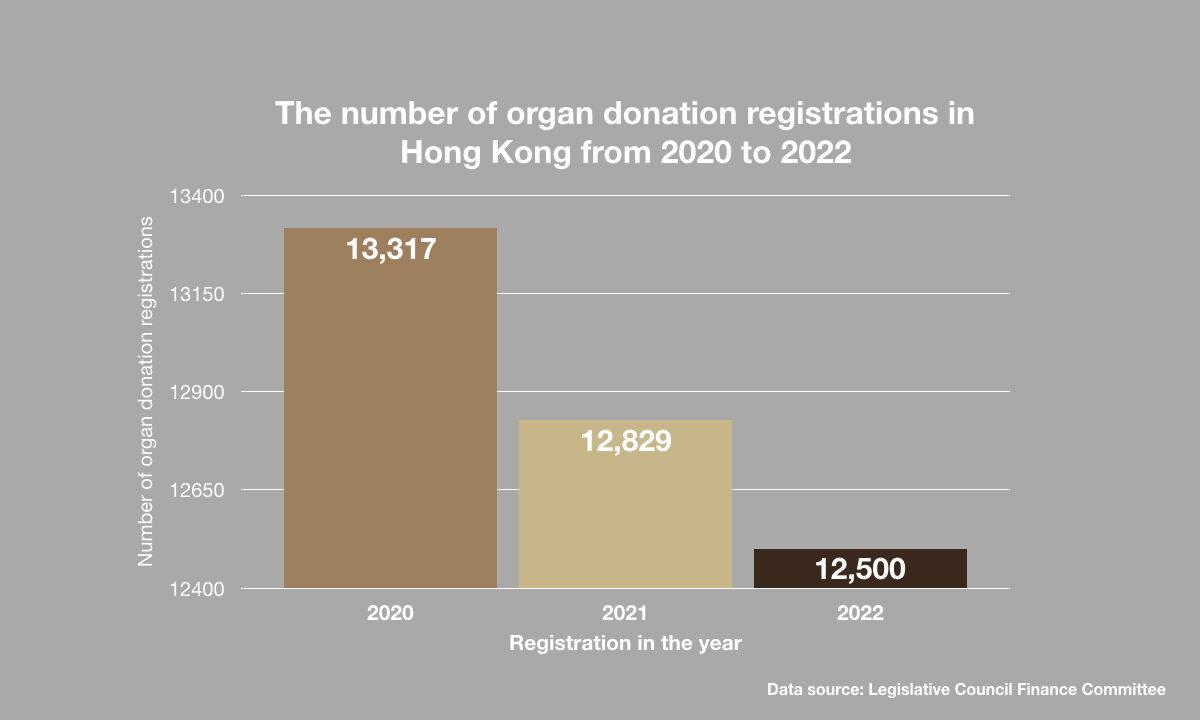
Alex Lam Chi-yau, chairman of Hong Kong Patients’ Voices, expressed multiple concerns about the organ transplantation assistance mechanism between Hong Kong and mainland China. These concerns include the possibility of donors being unwilling to send organs to mainland China, leading them to withdraw their organ donation registrations. He also questioned how “extra organs could be available and sent to Hong Kong,” considering mainland China’s significant organ transplantation demand.
In an interview with Radio Free Asia, a former Hong Kong doctor, Dr. Lee, expressed his distrust of China’s organ donation system. He said his concerns that once Hong Kong is integrated with the mainland, illicit organ trade from China may move to Hong Kong, making Hong Kong “participate in an axis of evil.”
Furthermore, the Hong Kong government claims the COTRS has received “high recognition” from the World Health Organization and the World Transplantation Society.
The data from COTRS has been questioned. Researchers, including Matthew Robertson, a doctoral student at the Australian National University, published a paper in the professional medical journal “BMC Medical Ethics,” analyzing official data on voluntary organ transplantation in China from 2010 to 2018 using statistical methods. The researchers found that the COTRS data almost fit a simple quadratic equation each year, suggesting that the data were manipulated manually.
International Call to Boycott CCP’s Organ Whitewashing
Regarding the ongoing collaboration in organ transplantation between Hong Kong and mainland China, Dr. Jacob Lavee, former chairman of the Israeli Transplantation Society and a renowned Israeli heart transplant surgeon, expressed concerns to Epoch Times. He stated, “This may drag Hong Kong into a situation where organs obtained through live organ harvesting are being used.” Such actions are bound to provoke international resistance, which “will undoubtedly lead to the expansion of academic boycotts, including those from the International Society for Heart and Lung Transplantation. Currently, this boycott targets organ transplant doctors from mainland China but would equally apply to their colleagues from Hong Kong.”He further suggested that Western countries should “unite their diplomatic and economic efforts to combat these atrocities (live organ harvesting) and end Hong Kong’s use of harvested human organs.”
Dr. Jacob Lavee is a member of the Ethics Committee of the International Society for Heart and Lung Transplantation (ISHLT). In 2022, the ISHLT issued a statement prohibiting the publication of any research papers on organ transplantation from China.
Former Deputy Minister of Health of the Chinese Communist Party (CCP), Huang Jiefu, who international organizations accused in January 2023 of involvement in live organ harvesting, proposed exporting organs to Hong Kong and Macau and promoting the so-called “mainland and Taiwan organ sharing mechanism,” connecting countries along the Belt and Road Initiative.
Chairperson of the Universal Declaration on Combating and Preventing Forced Organ Harvesting, Teresa Chu, called on the world to resist the CCP’s organ whitewashing, organ warfare, and organ diplomacy. She stated, “Through this ‘organ sharing’ mechanism, they want to whitewash these stolen, forcibly harvested, live-harvested organs. This is not humanitarian cooperation. Hong Kong, Macau, and Taiwan governments should resist and reject this ‘organ-sharing mechanism.’”
Overwhelming Evidence of CCP’s Live Organ Harvesting Crimes
Since the exposure of the CCP’s organ-harvesting atrocities in 2006, numerous international investigations have confirmed the existence of these practices. Prominent human rights lawyer David Matas, in an interview with Epoch Times senior editor Jan Jekielek, stated, “The problem is not a lack of evidence but rather an excess of it.”Matas served as a joint investigator and co-author of the reports “Revised Report into Allegations of Organ Harvesting of Falun Gong Practitioners in China” and an updated version of “Bloody Harvest, The Killing of Falun Gong for their organs,” released in 2006 and 2016, respectively. These reports confirmed the large-scale live organ harvesting of Falun Gong practitioners by the CCP.
On March 27, the U.S. House of Representatives passed the “Stop Forced Organ Harvesting Act of 2023.” The bill is awaiting approval by the U.S. Senate and the President’s signature to become effective.
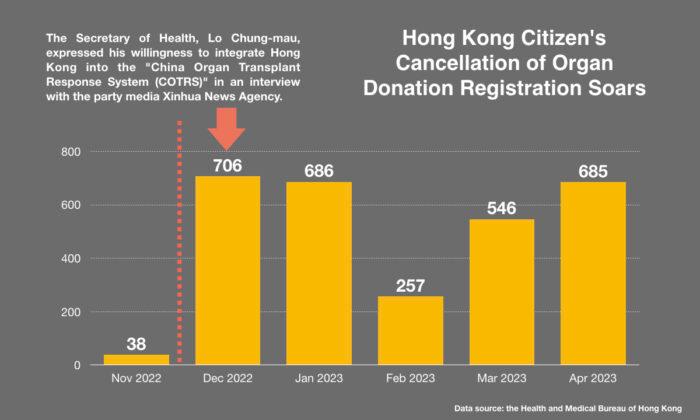
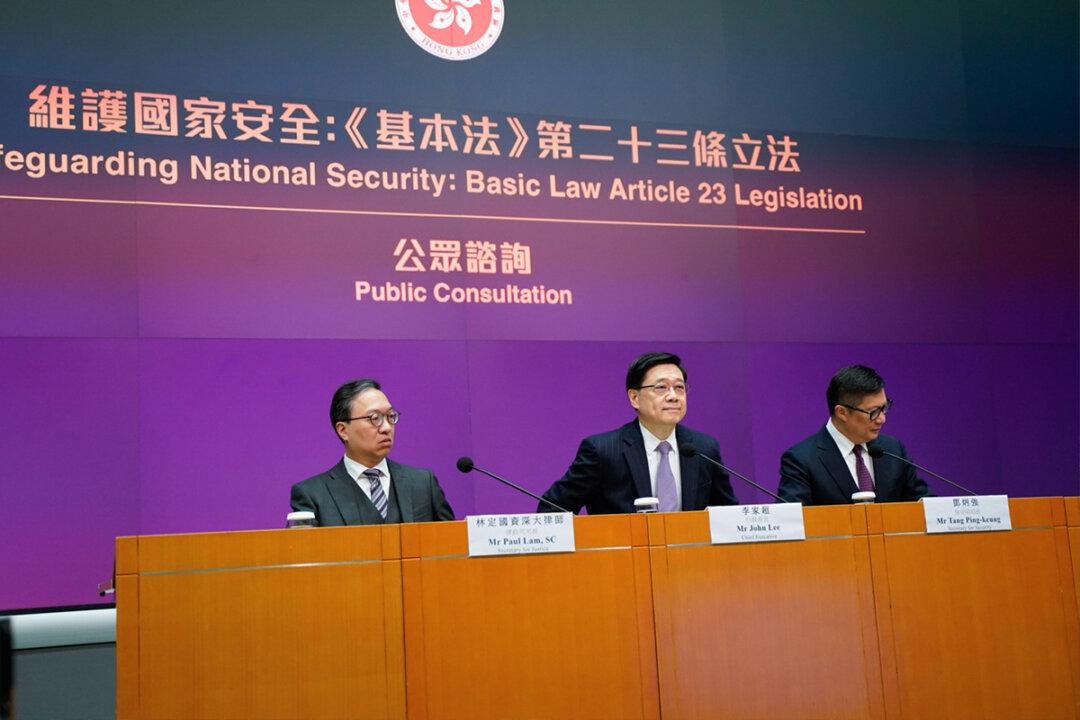
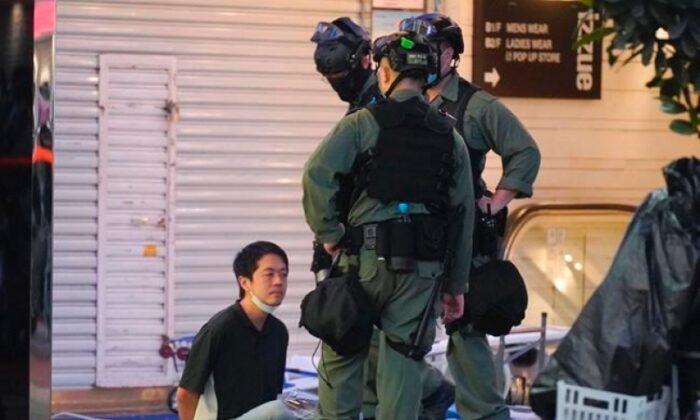
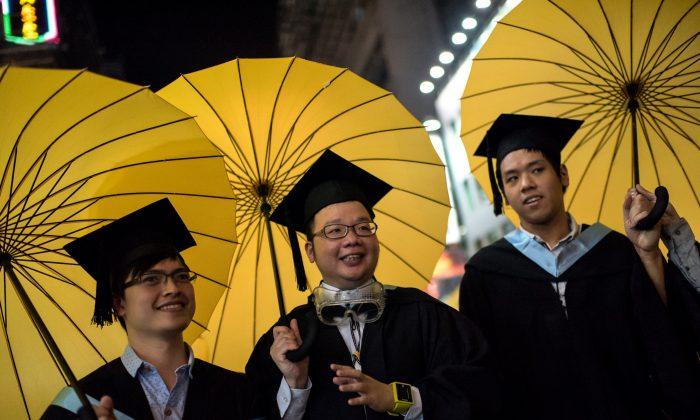

Friends Read Free